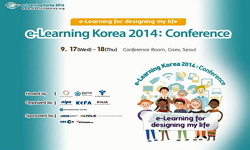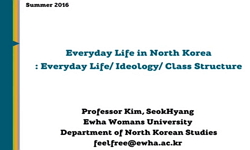A national wide survey was conducted to assess a present condition in management of cleft and craniofacial anomaly patients and training program of orthodontic residents in Korea. A questionnaire consisting of four categories and 19 question items was...
http://chineseinput.net/에서 pinyin(병음)방식으로 중국어를 변환할 수 있습니다.
변환된 중국어를 복사하여 사용하시면 됩니다.
- 中文 을 입력하시려면 zhongwen을 입력하시고 space를누르시면됩니다.
- 北京 을 입력하시려면 beijing을 입력하시고 space를 누르시면 됩니다.

구순구개열 및 두개안면기형 환자의 진료 및 교육현황에 관하여 치과교정과 전공의를 대상으로 한 기초설문 조사 결과 = A National Survey for Korean Orthodontic Residents about a Present Condition in Management and Training Program for Cleft and Craniofacial Patients
한글로보기https://www.riss.kr/link?id=A105226899
- 저자
- 발행기관
- 학술지명
- 권호사항
-
발행연도
2012
-
작성언어
-
- 주제어
-
KDC
515
-
등재정보
KCI등재후보
-
자료형태
학술저널
-
수록면
11-20(10쪽)
- 제공처
-
0
상세조회 -
0
다운로드
부가정보
다국어 초록 (Multilingual Abstract)
A national wide survey was conducted to assess a present condition in management of cleft and craniofacial anomaly patients and training program of orthodontic residents in Korea. A questionnaire consisting of four categories and 19 question items was distributed to 131 residents of department of orthodontics of eleven dental university hospitals and nine medical university hospitals. The results were as follows:(1) 77.1% of residents are participating in treatment of cleft and craniofacial anomaly patients.(2) Only 47.3% of residents are willing to treat cleft and craniofacial anomaly patients in their future practice.(3) 64.9% of residents responded that they are currently treating one to ten cleft and craniofacial anomaly patients per resident.(4) Most university hospitals offer training programs focusing on embryopathogenesis, growth, and treatment, but training programs about speech and hearing, genetics, and psychosocial development are inadequate.(5) 37.4% of residents are willing to participate in fellowship program for cleft and craniofacial anomaly after finishing the training. Based on the results of this survey, the residents need motivation regarding treatment of cleft and craniofacial anomaly patients, and the educational programs need to be reinforced and reconstructed so that standardization among hospitals can be achieved.
목차 (Table of Contents)
- ABSTRACT
- Ⅰ. 서론
- Ⅱ. 연구재료 및 방법
- Ⅲ. 고찰
- Ⅳ. 결론
- ABSTRACT
- Ⅰ. 서론
- Ⅱ. 연구재료 및 방법
- Ⅲ. 고찰
- Ⅳ. 결론
- 참고문헌
동일학술지(권/호) 다른 논문
-
Parry-Romberg Syndrome 환자에서 악정형 및 교정 치료
- 대한구순구개열학회
- 유국호
- 2012
- KCI등재후보
-
회전-신전법의 Mulliken 변형을 이용한 편측 구순열 수술
- 대한구순구개열학회
- 이규태
- 2012
- KCI등재후보
-
성인 구순구개열 환자에서 Multidisciplinary 치료로 기능성 교합을 형성한 증례
- 대한구순구개열학회
- 이지나
- 2012
- KCI등재후보
-
- 대한구순구개열학회
- 김현수
- 2012
- KCI등재후보




 ScienceON
ScienceON 스콜라
스콜라






